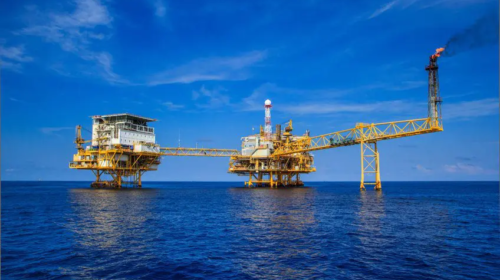Pakistan’s gasoline consumption growth is expected to hover at close to double digits over the next three years on rising auto sales, while gasoil demand will grow at around half that rate, despite the push toward cleaner fuels, CEO of Pakistan State Oil Syed Muhammad Taha told S&P Global Commodity Insights in an interview.
“In the next two to three years, motor gasoline demand is expected to increase by 8% to 10% per annum owing to the significant increase in economic activity,” Taha said.
“Moreover, another factor which would keep growth in line with expectations is the announcement of the new auto policy, which will bring different variants of automobiles into the market and hence increase sales,” he added.
Taha, who is also the managing director of PSO, added that Pakistan’s economic growth in the current fiscal year ending June 30 is expected to be around 8%, compared with 11% in the previous fiscal year, when growth rebounded from a lower base the year before.
“For high speed diesel or gasoil, we expect growth to be around 4% to 5% over the next few years as it is linked with economic growth emanating mainly from the manufacturing and agricultural sectors,” he said.
Taha highlighted that in the last six months or so, the government had taken numerous measures to curb cross-border smuggling of diesel, especially from Iran, to help improve sales of the fuel in the domestic market.
Taha added that imported LNG would also contribute substantially to the petroleum products demand growth in the country amid depleting gas reserves at home and no major discovery in sight.
“With domestic gas production of around 3.6 Bcf/d and demand hovering between 4.5-5 Bcf/d, the gap has to be bridged through LNG imports, which will show our increasing reliance on imported gas,” he added.
The country’s import bill for gasoline and high-speed diesel is expected to range between $7 billion-$8 billion in the current financial year, out of which PSO’s share will account for about 40%-50%, Taha added.
Refining projects
Commenting on the issue of new refineries coming up in Pakistan, Taha said several entities were exploring refining prospects in various parts of the country, including in the hub city of Gwadar in Balochistan province and Karak in Khyber Pakhtunkhwa.
“In view of the supply and demand pattern, one or two refineries may be installed in the country,” he said, without providing details of the potential projects.
PSO is the entity nominated by Pakistan’s government for a joint project with Saudi Arabia to set up a greenfield refinery with integrated petrochemical manufacturing facilities.
In addition, Pakistan Refinery Limited, a subsidiary of PSO, is aiming to upgrade and nearly double its refining capacity to 100,000 b/d, Taha said.
The upgraded refinery will produce Euro 5 gasoline and diesel and is estimated to cost around $1.2 billion. It will help the refinery to improve refining economics and margins by increasing output of premium products, while significantly reducing the production low-margin products, such as furnace oil.
PSO is the largest company in the country in terms of oil storage at around 1.1 million mt, accounting for 40% of the country’s overall storage capacity.
Taha said that in order to cater to the growing demand for energy, there was a need for the country’s projects to gain operational efficiency, in addition to the need to fast-track infrastructure projects.
“We initiated our ‘New Storage Development Program’ back in 2019 and have added 119,800 mt to our storage capacity at various locations including Shikarpur, Tarujabba, Faisalabad, ZOT and Mahmoodkot. Another 42,700 mt in Machike will be added to the total in the current financial year,” he said.
Additional storage capacity of around 180,000 mt would be added as part of the development plan in the next 3-5 years at major consumption hubs, he added.
Impact of electric vehicles
Regarding the country’s electric vehicle policy, Taha said that the impact of EVs would not be substantial over the next 3-5 years unless mass-scale investments were made in EV infrastructure throughout the country, along with a sharp rise in the availability of low-cost electric vehicles.
“Therefore, no considerable impact is expected on oil consumption in the next 3-5 years,” he said.
An EV influx, mainly in the two-wheelers segment, is anticipated in the longer run. Hence, consumption of motor gasoline may drop gradually by up to 10%-15% provided there was a massive scale conversion,







